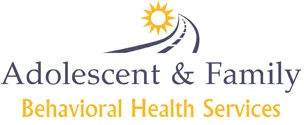"If one makes a mistake, then an apology is usually sufficient to get things back on an even keel. However-and this is a big ‘however’- most people do not ever know why their apology did not seem to have any effect. It is simply that they did not make a mistake; they made a choice…and never understood the difference between the two" (The Noticer, Andrews). How many times have you heard someone apologize to you and it did not feel right? My guess is that you have heard individuals say, "You will not accept my apology unless I say it just the way you want me to say it." Did you walk away feeling there was something wrong with you, or perhaps the other person was clueless but you couldn't put your finger on the why you felt worse? Perhaps it was because the person apologizing took no responsibility for her (using one gender is easier that saying his/her) actions. Perhaps it was because the person blamed you for feeling hurt. A young driver hit me from behind and it was truly an accident. No damage was done, a simple, "I'm so sorry, I didn't see you" was sufficient. There are times when a little more is required. More is required when it is not an accident. More is required when damage is done. Sometimes an apology requires different steps (The Five Languages of Apology, Chapman and Thomas): (1) Expressing Regret: “I am sorry” (2) Accepting Responsibility: “I was wrong” (3) Making Restitution: “What can I do to make it right?” (4) Genuinely Repenting: “I’ll try not to do that again” (5) Requesting Forgiveness: “Will you please forgive me?” The interesting thing about truly apologizing or doing any of the five languages of apology is that you will have to take responsibility for your "choices" that caused the need for an apology and not minimize it by calling it a "mistake." Without an awareness of the choices one makes, it is likely the same choices will be made again.
493 Century Lane
Holland, MI 49423
2566 Woodmeadow Drive SE
Grand Rapids, MI 49546
55 Harrow Lane
Saginaw, MI 48638
SUBSCRIBE TO THE BLOG
CATEGORIES
- Adolescence
- Articles
- Author
- Books
- Borderline Personality Disorder
- Boundaries
- Ceremonies in Therapy
- Children
- Christian/Spirituality
- Dialectical Behavior Therapy (DBT)
- Family
- Family Matters
- Grief and loss
- Groups
- Holidays
- In The News
- Marriage and Family
- Movies
- Novel
- Paige Agnew
- Parenting
- Race
- Self Injury
- Self-Care
- Self-Esteem
- Self-Improvement
- Short Story
- Social Justice
- Suicide Prevention
- Tools You Can Use
- Uncategorized
- Validation
FOLLOW ME

